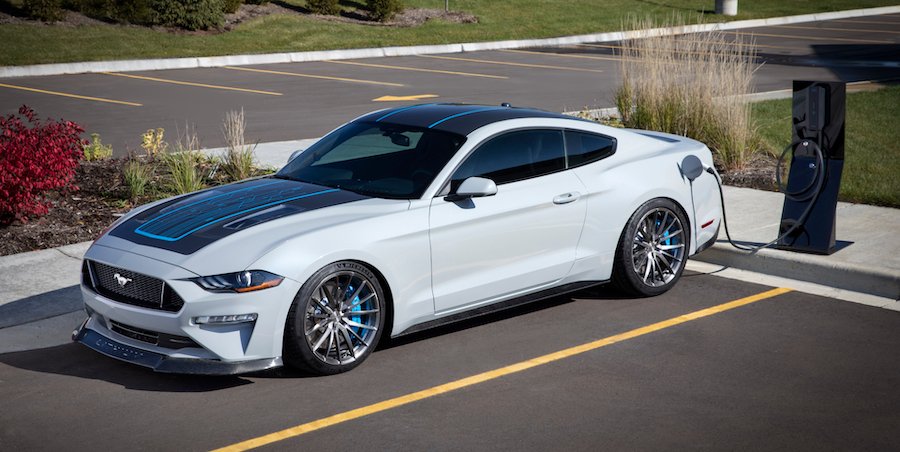Ford has promised that every model in its European line-up will be available as a plug-in hybrid (PHEV) or electric vehicle (EV) by the middle of 2026, ahead of the passenger line-up becoming fully electric by 2030.
The company said that it is going "all in on its electric passenger vehicles," while its commercial vehicle line-up, which it says is key to ensuring growth and profitability, will be entirely zero-emissions-capable by 2024.
Ford expects two-thirds of its commercial vehicle sales in Europe to be accounted for by PHEV and EV variants by 2030.
The UK government has pledged to ban the sale of new petrol and diesel vehicles by 2030, although some hybrids will be allowed until 2035.
With that deadline on the horizon, Ford has committed $1 billion (£719.4 million) to the renovation of its European headquarters in Cologne, Germany. This investment will result in the existing assembly plant - which currently makes the Fiesta - transformed into the Ford Cologne Electrification Centre, which will produce the company's "first European-built, volume, all-electric passenger vehicle for European customers" in 2023.
That all-new EV will sit atop the Volkswagen Group's MEB electric architecture - as used by the new ID 3 and ID 4 - as part of a strategic platform-sharing agreement between the two firms. Ford has the option of producing a second EV at Cologne using the MEB, and has promised further details within the next few months.
"Our announcement today to transform our Cologne facility, the home of our operations in Germany for 90 years, is one of the most significant Ford has made in over a generation," said Ford of Europe president Stuart Rowley. "It underlines our commitment to Europe and a modern future with electric vehicles at the heart of our strategy for growth.
"We will offer an exceptional range of electrified vehicles, supported by customer-centric digital services and experiences, allowing our customers to come with us on the journey to a fully electric future, starting right now with the launch of the all-electric Mustang Mach-E. In combination with our leading commercial vehicle business, this will form the basis of a sustainably profitable Ford business in Europe."
The first EV will initially be built alongside the existing Fiesta in Cologne, Rowley confirmed, with production of the firm's Ecoboost engines continuing at the site's engine plant. He cited Ford's diesel engine production facility in Dagenham, London, as "an important part of our business" acknowledging that diesel is still in strong demand, particularly in the commercial sector.
The future of the Fiesta itself, likewise that of its Focus, Puma and Kuga rangemates, remains unclear, but Rowley promised that the "Ford products we bring to market will be fully differentiated", suggesting a maintained focus on various segments. From 2023, all Ford models will be equipped with infotainment and connectivity software provided by Google, ditching the current Sync-branded platform.
Ford has been beaten to market by rival manufacturers in several key EV sectors, but its plans for the next decade are wide-ranging. The company is investing $22bn (£15.8bn) in electrification globally – a figure it claims is double that of previous plans.
The company has also agreed to work together with the Volkswagen Group across various markets and consequently is set to use the firm's MEB platform to underpin at least one electric car by 2023.
Its Ford Otosan joint venture in Turkey is designed to deliver "cost-effective vehicle development and sourcing" and it has launched a number of connected services - such as FordPass Pro and Ford Fleet Management - to complement its commercial vehicle operations.
Elsewhere, it has signed a deal with Google to "drive disruptive, data-driven opportunities" – an avenue that most major manufacturers are exploring as cars become ever more connected to the internet.
Related News

